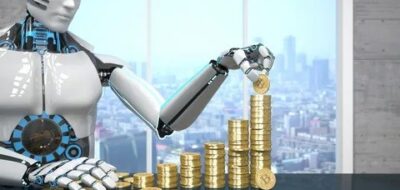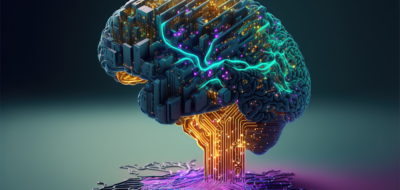Artificial intelligence is frequently presented as an abstract demonic force that can do unforeseeable things. This view persists despite the fact that machine learning, autonomous vehicles, the internet of things and the feats of IBM’s computer Watson are the work of living brains, people who seek to make the world a better place, make humanity healthier and perhaps even extend human life.
Some of the persons I have described below have achieved a celebrity status that approximates that of rock stars. Others remain known only in the inner circles of their respective industries. The lineup I have prepared includes people who I believe will critically influence the future of technology, if not our entire civilization. I have long found them thoroughly fascinating. They intrigue me with their creative achievements and the way their careers have unfolded. The criteria I used to include them on my list were their popularity and how often they are mentioned in debates on new technologies. They are the ones who will be tackling the challenges and achieving the goals that today appear to be beyond human grasp.
Needless to say, the list is far from complete, as it could be extended to even a hundred of names. Note also that the order in which the names appear is accidental.
Elon Musk. Open AI
Musk is nearly an institution in his own right. He is most likely a workaholic, and certainly an entrepreneur committed to projects that others find extravagant. He entered the upper echelons of business through PayPal – an online payment platform acquired by eBay in 2002. His initial achievement was followed by others, attained with an equal if not greater flair. With SpaceX, Musk reached beyond Earth’s orbit. The company develops rockets and spacecraft which, as intended by its founder, make flights beyond the Earth’s orbit accessible to anyone who can afford to pay the price. Equally noteworthy is Solar City – the photovoltaic cell maker, Tesla Motors – the company that is out to revolutionize car travel, and the Hyperloop – a project that promises to reduce multi-hour journeys to short trips.
Against this background, Musk’s fascination with artificial intelligence comes as no surprise. His digital tech ideas open up a whole new business, cultural, intellectual and civilizational dimension. Musk just loves “cosmic-scale” challenges. It is therefore no wonder that he devotes a great deal of his time to artificial intelligence. His Open AI project may well lay the technological groundwork for AI and achieve what Tesla is doing in the automotive industry. Or at the very least become a key initiative in the field. In essence, Open AI is a for-profit institute dealing with many aspects of artificial intelligence, deploying technologies and popularizing the concept. Hence, in addition to providing freeware (dozens of software packages are already available), the company holds scientific conferences that bring together the business and engineering elites. Within its framework, programmers develop new codes while Musk himself conceives ideas for their marketing. After all, he is more of a practitioner than a theoretician. Artificial intelligence appeals to him not as a fad, but rather as a solution that will generate concrete returns. An example of its use is in Tesla’s autonomous vehicles, whose highly intelligent computers become fully-fledged road users, with all the accompanying implications.
One can hardly deny the role that Musk often plays as a mentor concerned with the fate of earthlings who are faced with the option of losing their freedom to digital entities. He is well posed to voice concerns, as he knows best what is brewing in his laboratories. Therefore, whenever he speaks, people listen.
Elon Musk: ‘Artificial Intelligence is Mankind’s Biggest Threat’
Ray Kurzweil, Google, Singularity University
Ray Kurzweil can confidently be described as an outstanding mentor, an authority and a theoretician regarding the birth and development of artificial intelligence. Kurzweil is a computer programmer, an inventor, an author and a futurologist. His experience and knowledge are so impressive they have caught the attention of Google management. Since 2012, he has been working for Google, running some of the grandest AI research projects. For many years, he has astonished people with controversial views and an innovative mindset. The latter manifested itself in his youth, when he made his name as a composer. The amazing part of this story is not that, as a teenager, Kurzweil displayed a musical talent. What wowed audiences was the artist’s admission that his piece was composed by… a computer.
As a grown-up futurologist, Kurzweil’s original claim to fame was his theory on artificial intelligence, which was one of the most original views on the topic. Referring to the law of accelerating returns, he concluded that, as a species, we have evolved to a tipping point which, if exceeded, will have serious consequences for humanity. Much publicity was received by his concept of the “singularity” which he defined in his now classic book The Singularity is Near. The term refers to a breakthrough in human development. We are nearing a point, predicted to come in 2030-2045, where the computational power of computers will be so gigantic that it will exceed the information processing capacity of the human brain. As a consequence, our way of life is set to change dramatically very soon. The changes will redefine our existential status. According to Kurzweil, as a species, we will evolve into a whole different creature. Merged with information technology, we will usher in an age of “trans-humans” in which man and machine will merge. Kurzweil has done a great deal to promote technological ideas. In 2009, in collaboration with Google and NASA, he established a futurology department at Singularity University in the Silicon Valley. Earlier, together with PayPal co-founder Peter Thiel, he launched a series of annual conferences dubbed the Singularity Summit. He received multiple awards from prestigious universities and organizations across the world.
Ray Kurzweil: The Coming Singularity
Demis Hassabis. Deep Mind
Hassabis is a researcher, a talented chess player, a programmer and an author of popular computer games. As a doctoral student, he wrote dissertations in cognitive science, a field that combines cognitive psychology, neurobiology and artificial intelligence. It was his interest in science that led him to AI research. As a scholar, Hassabis dealt with memory, and particularly its damage and loss. One of the defining moments in his business career was his decision to set up, in 2010, the company DeepMind, with a mission to do research on artificial intelligence. Its founders focused on the key field that underpins AI, i.e. machine learning. The developer’s ambition was to marry neurobiology and IT (cognitive computing). All these fields are critical for the further development of technologies used in the broadly-based field of artificial intelligence. The DeepMind project produced algorithms that enabled a computer to play an Atari game by recognizing the graphics displayed on a monitor. The best-known DeepMind achievement was the spectacular victory of a computer in a match against masters of the Chinese game of Go. This traditional game, with millions of possible combinations of playing pieces, became an excellent testing ground for AI effectiveness. Further accomplishments followed the acquisition of DeepMind by Google, which provided a great deal of leeway to its researchers. Currently, DeepMind focuses on applying IT in medicine and continues to do research on machine learning.
Demis Hassabis, CEO, DeepMind Technologies – The Theory of Everything
Ginni Rometty, IBM
A true “star” among computers and an unmatched model for machines around the world is IBM’s Watson, of which I have written on several occasions. This incredibly intelligent machine has many powers: it can sift through complex information (from cooking recipes to intricate scientific concepts), analyze huge amounts of data stored in various formats, learn new things and ideas, acquire data and, most importantly, use natural language to communicate with users. It has proved its prowess in play. In 2011, IBM’s Watson beat two human champions of a popular general knowledge quiz on UK television. Of course, there is more to Watson’s story than this single triumph. IBM has declared its main plan was to apply the computer in medicine. Nonetheless, it seems to me that Watson’s commercial success did wonders to promote the machine. Yet neither the victory, nor the considerable fame that followed could ever have been achieved without Ginni Rometta, IBM’s current CEO. Ranked repeatedly among the world’s most influential people, she has shown exceptional marketing acumen. While until recently, notions such as machine learning and cognitive computing have only been understood by a narrow circle of IT experts, she chose to bring these ideas to the mainstream and capitalize on them. She may well soon earn credit for introducing machines such as IBM’s Watson to every hospital, school, research institute and enterprise in the world.
IBM CEO Ginni Rometty on Watson, “man and machine” era
Martin Ford, author
Although largely unknown in Poland, he gained worldwide recognition a few years ago owing in part to his numerous commentaries and articles in U.S. press.
Martin Ford comes from California, where he runs his IT business. Before making his name as an author, he spent over two decades writing computer code and developing software. This experience makes him highly knowledgeable about computers. Consequently, his reflections on the topic are more than the abstract musings of an intellectual.
Ford’s most successful book thus far is Rise of the Robots, which has made the New York Times bestseller list and been translated into 20 languages. In it, Ford takes a closer look at the anxieties troubling today’s civilization. His reflections center on the developments faced by many members of the middle class across the world, among them robotization, work automation and digitization.
Ford has realized that people are plagued by fears, some of them more groundless than others. The industrial revolution undermined the social and economic standings of traditional manual laborers. Assembly line manufacturing has put huge numbers of people out of jobs. The revolution driven by global digitization worries financial analysts, computer programmers, office workers, analysts and journalists. They are all finding that their jobs can be performed by machines, whose advantage is that they never complain, never get tired, never set up trade unions and never ask for a raise. Even today, many press agencies around the world use computers to produce reports. Hundreds of thousands of robots sort mail in Chinese warehouses. Robotic cameras reach where a surgeon’s eye could not… Should all this terrify us? Or are we to take a plunge into a reality offering new previously unknown opportunities? Ford’s answers are never conclusive, although he tends to be highly critical and generous with warnings. For the most part, though, he signals problems that are already here and are bound to hit us particularly hard five to ten years from now. In addition to the famous Rise of the Robots, Ford has also written The Lights in the Tunnel: Automation, Accelerating Technology, and the Economy of the Future.
Martin Ford on the Rise of the Robots
So, these are my own subjective choices for “The Hall of Fame of Artificial Intelligence”. Who would you pick for that list? Write a comment.
Related articles:
– Medicine of the future – computerized health enhancement
– Only God can count that fast – the world of quantum computing
– According to our computers … You don’t exist
– What a machine will think when it looks us in the eye?
– The lasting marriage of technology and human nature
– The brain – the device that becomes obsolete










Adam Spark Two
Elon Musk is genuinely trying to make the lives of future humans better. That’s his main motivation.
I mean, he really likes his money, sure, but if he liked it better than improving the future of his species he would’ve hanged on to his $300ml instead of betting it all on crazy companies like Tesla and Spacex.
And now that Gates and Musk are out of the way the list of billionaires that actually care about humanity is pretty short.
Adam Spikey
The human brain is complex, but whatever complex it is, there is nothing forbidding for simulating it, unless you take into account quantum physics and then we’ll have to debate a bit more. But even then, you don’t have to be quantum physics to simulate quantum physics. If the state of a particle is trully random, let’s simulate it as fake random and we should be good. Like I said, it might be impossible to predict, but simulate should be possible. Whatever chaos there is, in my understanding, nothing trully prevents a simulation for our current knowledge. Chaos and emerging behaviors are easily simulated anyway.
Also, there is no proof that, whatever complex our brain is, the final output is not a simple mix of logic, memory and simple randomness. If you take an insect, its behavior is often very simple and can be easily completely simulated using a simple state machine, without even reaching the mess of quantum physics.
Adam Spikey
First of all, it is funny that some evolutionists believe that machines can have morality, while morality originates from the bible.
According to the bible, humans separate from animals by having a spirit, which provides humans a free will and a set of morals. Spirits – being supernatural – are by definition not bound by laws of nature. Therefore, spirits can’t be captured in machines, which are bound by laws of nature. So, a machine will never have a spirit; a free will and an autonomously controlled set of morals like humans have.
DDonovan
We have geniuses like Stephen Hawking and Elon Musk pleading with society to take the laws of robotics seriously less we someday soon make the ultimate mistake. Then we have the militaries of various countries like the U.S. and Israel who are trying as hard as they can to weaponize basically every platform they can get their hands on. Israel is already eluding that their killer self-driving Humvees might have an auto-kill feature soon. It’s like we are going in the ethically questionable direction as fast as we can.
John McLean
Will it really though? How are we to know that these augmented humans won’t act against the interests of everyone else? If anything, I think augmented humans would be much more dangerous than a super intelligent AI.
(If you want to argue that, well, we’ll all be augmented humans so there is no problem, there’s still the problem with the first Augmented human wiping everyone else out, since they are now super intelligent and has the ability to do so.)
CaffD
Remember this?
– A robot may not injure a human being or, through inaction, allow a human being to come to harm.
– A robot must obey the orders given to it by human beings, except where such orders would conflict with the First Law.
– A robot must protect its own existence as long as such protection does not conflict with the First or Second Laws.
Norbert Biedrzycki
Sure. The Three Laws of Robotics or Asimov’s Laws. Set of rules devised by famous science fiction author Isaac Asimov
TomK
Very nice read
Norbert Biedrzycki
Thank you
Check Batin
Not revolutionary; they’re just trying to get AI into the mainstream. And they’re doing it by rebranding AI to “cognitive”.
I think it’s a great plan and we desperately need more AI in our computers. For example, typing “exot” on a terminal gives you a “file not found” error. With just a trace of intelligence, it could have determined that that was just a typo.
johnbuzz3
Computers, currently and for the foreseeable future, can only ask the question ‘how’. I have studied all AI techniques currently at the forefront of AI research and the best description for them is statistical calculators.
While a whole-heartily support your suggestion of creating these machines to try and understand ourselves better. It is pointless to implement something like this for any commercial or practical reason. There fore I will stand by my conclusion that ethics and any projection of it onto a decision making computer system is a waste of time.
John Accural
Interesting indeed. What about self-concious machines?
DDonovan
Imagine that instead of getting a free year on the job and then fighting to keep it (by hiding from voters), this campaign would have been her first real exposure on prime-time TV. She would have needed to get out there much earlier and improve or fail.
John Accural
Fascinating what IBM has done with Watson. The opportunities are incredible. Looking forward to more!! That isn’t the problem. The problem with Watson is that people have different levels of expectations. I’ve seen some work where people complain about things that the system don’t even offer as a functionality. Check this out http://www.ibmchefwatson.com
Adam Spark Two
It’s not Watson only. Data scientists may apply traditional machine learning algorithms to solve complex problems. However, these models don’t adapt to new circumstances as they are somewhat static. This means that as the market changes, the models may not work as brilliantly, because they failed to account for the market change. However, with new techniques such as Deep Learning combined with cognitive computing, models are moving towards an artificially intelligent system that not only analyzes large amounts of data at speed, but also uses that data and it’s outcomes to improve themselves.
Jack666
Elon Musk: Automation Will Force Universal Basic Income. As I understand it, UBI is essentially just a cheaper version of welfare and social security, and unemployment insurance. Instead of all of the over head managing those programs, governments just provide a UBI, and scrap all of the other programs.
Seems like a more efficient mechanism. So, he’s forcing this as a future refference for a powerty caused by intelligent machines
Karel Doomm2
Living forever could be worse than dying. If this AI is as intelligent as a human, or more so, it theoretically would form relationships. As it gains life experience (of several lifetimes) it would begin to lose its ability to relate to others and become lonely with no one who could understand it.
If it begins to outlive all of its friends this could create a feedback loop of emotional torture and loneliness. Death may be preferable to being a lone immortal.
John McLean
I am a stupid human and I don’t want to kill the planet or even living things that can kill me, this is where I come from. I think AI will do just fine. also if AI dominated over us by eliminating us it would be a hypocrite. see you are not good at math that is why you fear. AI will not have this problem.
Mac McFisher
Autonomous robots, self-driving cars, drones, and facial recognition devices already are affecting people’s careers, ambitions, privacy, and experiences. With machines becoming more intelligent, many people question whether the world is ethically prepared for the change. Extreme risks such as killer robots are a concern, but even more so are the issues around fitting autonomous systems into our society.
We’re seeing an impact from artificial intelligence on the labor market. You hear about the Google Car—there are millions of people who make a living from driving like bus drivers and taxi drivers. What kind of jobs are going to replace them?
Check Batin
Not revolutionary; they’re just trying to get AI into the mainstream. And they’re doing it by rebranding AI to “cognitive”.
As a cognitive scientist, this word choice bothers me a lot. Otherwise, I think it’s a great plan and we desperately need more AI in our computers. For example, typing “exot” on a terminal gives you a “file not found” error. With just a trace of intelligence, it could have determined that that was just a typo.
Adam Spikey
What about these folks?
– Stephen Hawking – Smarter than I can even comprehend.
– Grace Hopper – Developed the first computer program compiler and is the mother of machine-independent programming languages.
– Garry Kasparov – I know the rules, but I’ve never had a talent for the strategy of chess. I greatly admire those who have mastered it.
John McLean
Autonomous robots, in particular drones, have revolutionized data acquisition, not only for abiotic parameters, but also for recording the behavior of undisturbed animals and collecting biological material. Robots will also play an essential role in population ecology, as they will allow for automatic census of individuals through image processing, or via detection of animals marked electronically. These new technologies will enable automated experimentation for increasingly large sample sizes, both in the laboratory and in the field. Finally, interactive robots and cyborgs are becoming major players in modern studies of animal behavior. Such rapid progress nonetheless raises ethical, environmental, and security issues.
Mac McFisher
… and this scares hell out of me
Karel Doomm2
That’ll just be the tip of the iceberg in terms of problems that such an AI can solve for. I mean, there are a significant number of problems in our real world that like video games have a finite range of inputs and responses that nonetheless requires a degree of dynamic input. Those are the sorts of problems that this kind of AI would be good with at the beginning, as they map closely to the sort of problems that it’s already solving now.
Don Fisher
Kurzweil always says that DNA, the body that develops it and the body it eventually develops into are all parts of one huge, messy system. There are not, in nature, so many hard lines dividing that system up into sub-systems. We invent such lines to help us comprehend something too complicated to understand all at once.
To label parts of the system as “source code” or “config file” is to engage in a sort of cyberpomorphism. It’s sloppy when Kurzweil does it and it’s sloppy when Meyers does it too.
Karel Doomm2
The thing that makes Deep Mind’s algorithm special (and it is) is that it’s general-purpose. There’s no domain knowledge in the algorithm itself. The remarkable thing about its ability to learn how to play video games is that it doesn’t know anything about video games.
TomHarber
Kurzweil is making unsupportable assumptions. Although the rules for chess are simple, the variations of games that emerge can be huge. Even if the brain structure were as easily deducible from the genome as he claims, the decompressed designs for the brain have to undergo further expansion by interaction with the environment that further shapes capability within the base structure. He is failing to include that and other factors. I grant that he’s smart within his domain, but he goes wrong from time to time. For example where he claims he’s going to live far longer than other people because of the measures he’s taking. I’d grant him some years but the 150 claim is a thin prediction.
Mac McFisher
good example. Thanks
Adam Spark Two
However, if cognitive capabilities such as artificial intelligence and natural language processing are deployed together, deploying a chat bot or voice bot could potentially mimic the interactions you’d have with a wealth manager much better. An example would be the robo advice bot telling you that you have an amount in cash that you haven’t touched for the past two years and seeing if you’d like to take a look at their investment products.
John McLean
If the AI can simulate us, it can create more diversity than we can ourselves. We are complex, but bounded. The difference between Einstein and a dumb guy are not super huge. This is a matter of a single digit factor, or maybe two. If an AI becomes a million times smarter than us, it will probably describe us in a complete way, that would mean that us being alive might become irrelevant as they could revive us if the situation requires it, if it ever has to. But I think that we are not a good solution to things, we are often way too suboptimal.
Jacek B2
Very good point. Like your comment
TomHarber
Ray Kurzweil does not understand the brain: “He seems to have the tech media convinced that he’s a genius, when he’s actually just another Deepak Chopra for the computer science cognoscenti.”
Jack666
… could you be more specific? I would like to understand you arguments here
TonyHor
Interesting read. Some of them are really great minds to follow. Ahead of other futurologists. Way ahead
JohnE3
What about S. Hawking. He’s for sure one of the smartest, involved in AI studies. Was an inspiration for E. Musk. Hawking is perhaps best known for his pioneering theories on black holes and his bestselling 1988 book A Brief History of Time – and this is great read
Adam Spark Two
What about the boots. They can sit within a mobile application in one of the bot supported messaging systems like Facebook, Slack, Telegram, WeChat etc. and dramatically enhance the customer experience because they don’t need to wait for a human customer service representative or personal advisor to become available. As a result of this, the customer service arm of the business should see a shift from answering frequently asked questions to receiving more complex questions that would be a result of edge cases.